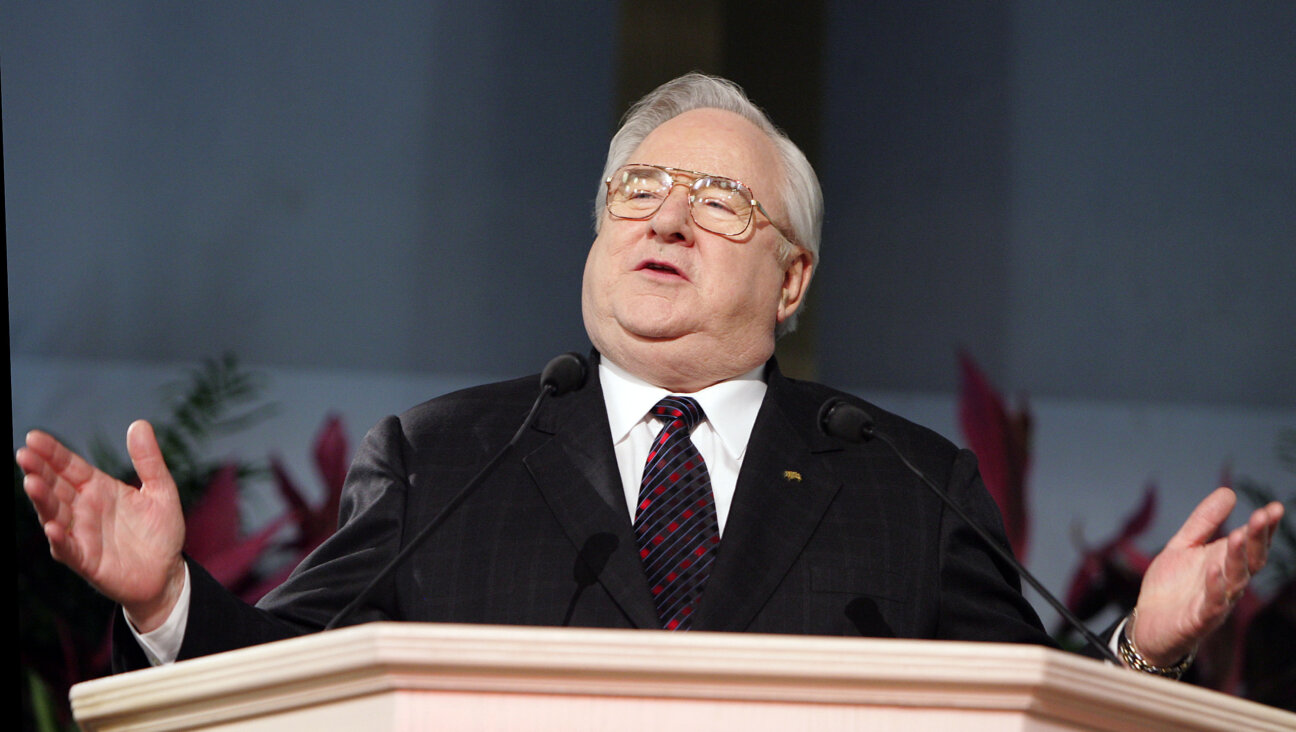Symphonies Lost and Found
You would have thought that musicians who escaped fascist Germany would feel liberated to compose in freedom. Not so. Restarting a career in a new country at any time is full of pitfalls, and even outside Germany, conservative musical tendencies in the 1930s were equated, rightly or wrongly, with the Nazi rejection of “degenerate” art.
In commemoration of the 70th anniversary of Kristallnacht, New York City’s Museum of Jewish Heritage presented “Music in Exile,” a program of concerts and lectures from November 9 – 13 devoted to composers whose careers were disrupted by the rise of fascism in Germany. “Music in Exile” was conceived and performed by Toronto’s Artists of the Royal Conservatory to build on the conservatory’s “Music Reborn” project, which revived music by composers who died in concentration camps. The program brought a fresh audience to pieces by composers whom the Nazis forced to re-establish their professional careers as émigrés. There is strong material among those voices that, ARC artistic director Simon Wynberg said, “deserves to breathe.”
ARC set out to demonstrate this with four concerts, arranged according to the nations in which selected composers re-established themselves: England, Russia, Germany and the United States. (The program of German “internal exiles” Walter Braunfels and Adolf Busch, however, had to be canceled after a death in the family of an ensemble member.)
“Continental Britons” opened with the mannered Suite for Violin and Piano of Brahms disciple Robert Kahn, who arrived in England in 1939 at age 74. But it was Mátyás Seiber’s Divertimento for clarinet and string quartet that provided a more modern, even brash, musical atmosphere. In its andante passage, a frank melody passed between soloist and first violin, recalling film themes, those sophisticated descendants of folk music. This was unsurprising, as Seiber, who studied in Budapest with Zoltán Kodály, was encouraged by that avid collector of folk music, Béla Bartók.
Exile can lead to the propagation of ideas, and Seiber brought to England a feeling of Hungarian folk music, and also jazz. In 1933, after giving Europe’s first academic lectures on jazz, at the Hoch Conservatory in Frankfurt — antagonizing the Nazis further — he left for England, where he became an admired teacher, working for decades with such musicians as guitarists Julian Bream and John Williams and tenor Peter Pears.
The most ambitious part of “Music in Exile” was the Russian section dedicated to the work of Mieczyslaw Weinberg. Until recently, Weinberg was largely unheard of in his native Poland or in the West, but ARC’s CD of his chamber music — “On the Threshold of Hope” — was nominated for a 2007 Grammy. Russians knew what a good composer they had (his works were played by cellist/conductor Mstislav Rostropovich and conductor Kirill Kondrashin), and it seems possible that his Judaism is the reason that Soviet authorities did not promote his music internationally.
Trained at the Warsaw Conservatory, Weinberg had left Poland before the Nazis attacked. He was working in the opera house in Tashkent, Uzbekistan, when he met the eminent actor and director Solomon Mikhoels, who showed Weinberg’s First Symphony to Shostakovich. Weinberg ended up marrying Mikhoels’s daughter, and Shostakovich went on to promote his colleague’s music. He facilitated Weinberg’s move to Moscow, and then, when Weinberg was incarcerated during antisemitic purges in 1953, wrote directly to Stalin on his friend’s behalf (Stalin’s death that March led to Weinberg’s release).
Giving the fullest hearing of a contingently neglected composer indicated the full value of ARC’s larger project of reclamation. The ensemble played two Weinberg pieces from the mid-1940s and a song cycle for bass and piano from 1976, framing Weinberg’s career. The two mid-1940s compositions, the sonata for clarinet and piano and the Piano Quintet, Op. 18, abound with musical currents, teeming and cavorting with a verve that doesn’t always resolve convincingly but sounds remarkable for having been written in an era of supreme crisis. The Piano Quintet culminates in the allegro agitato, where a bold, repetitive theme with a martial tinge initiated by the piano is taken up among the strings and then butted inexplicably against a wisp of a Highland dance melody that sounds, at first, like comic relief. The two melodies created an unlikely entente, and the quintet ends with the piano deconstructing that martial theme, suggesting, perhaps, the deconstruction of war itself as a major theme.
The final concert, “Exiles to America,” held an inspiring back story, with a world premiere by Walter Arlen, now 88, who relocated to Chicago from Vienna and was a longtime music critic for the Los Angeles Times. But, though sung with verve by baritone Chris Pedro Trakas, Arlen’s polished settings of Czeslaw Milosz poems held scant musical engagement, as was the case with the Mario Castelnuovo-Tedesco suite with which Trakas opened the evening. An austere, sharper edge came in Hanns Eisler songs from Brecht lyrics, composed in Hollywood before Eisler became a double-exile in East Germany (friends, including Charlie Chaplin and Leonard Bernstein, couldn’t defend him from the House Un-American Activities Committee). “Music in Exile” concluded with a recent musical theater work by Marc Neikrug, “Through Roses.” A seven-piece chamber ensemble veered from troubled, dreamy effects toward harsh eruptions as actor Saul Rubinek played the role of violinist Carl Stern, wrestling with memories of Auschwitz and lost love before going to sit with the ensemble as it played the piece’s solemn, deeply-affecting final measures.
Music was the focus of the week, but events also included lectures by historian Gottfried Wagner on the Nazi assault on “degenerate” art and music, and by musicologist Bret Werb on the musical pageant “We Will Never Die.” The massive pageant, organized in 1943 by scriptwriter Ben Hecht (“Gone With the Wind”; “Some Like It Hot”) with music by Kurt Weill and staging by Moss Hart, was presented at such venues as Madison Square Garden and the Hollywood Bowl in an attempt to alert America to the Holocaust. In that spirit, ARC is presenting “Music in Exile” in cities around the world (London; Rome; Toronto; Warsaw; Budapest, and Washington, D.C.) to remind the world what was lost. As ARC continues its musical journey, composers such as Weinberg and works such as “Through Roses” will be given, for the belated first time, a home and a space to breathe.























